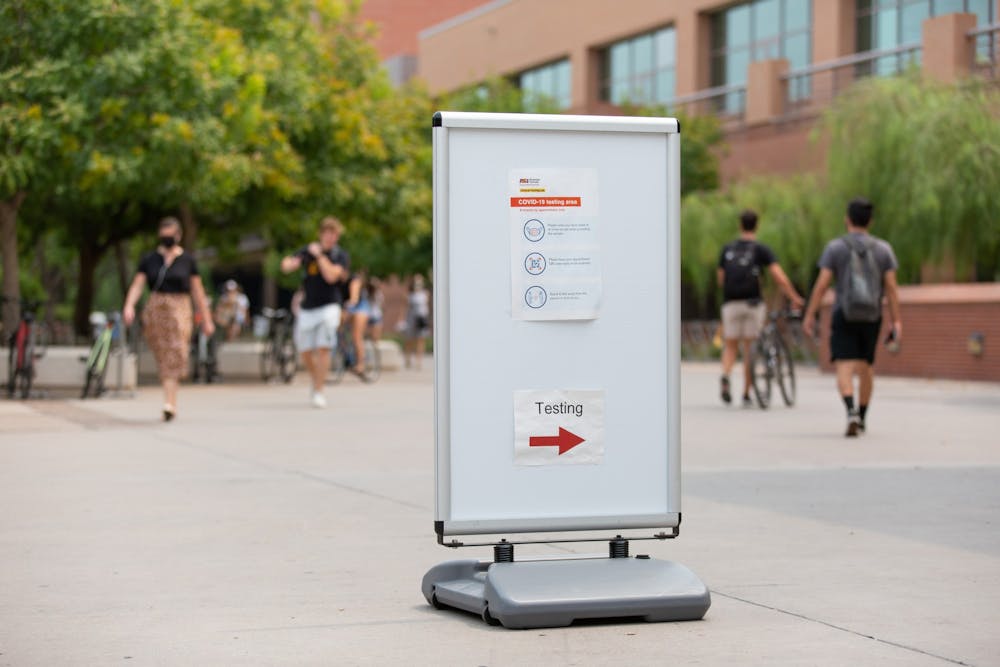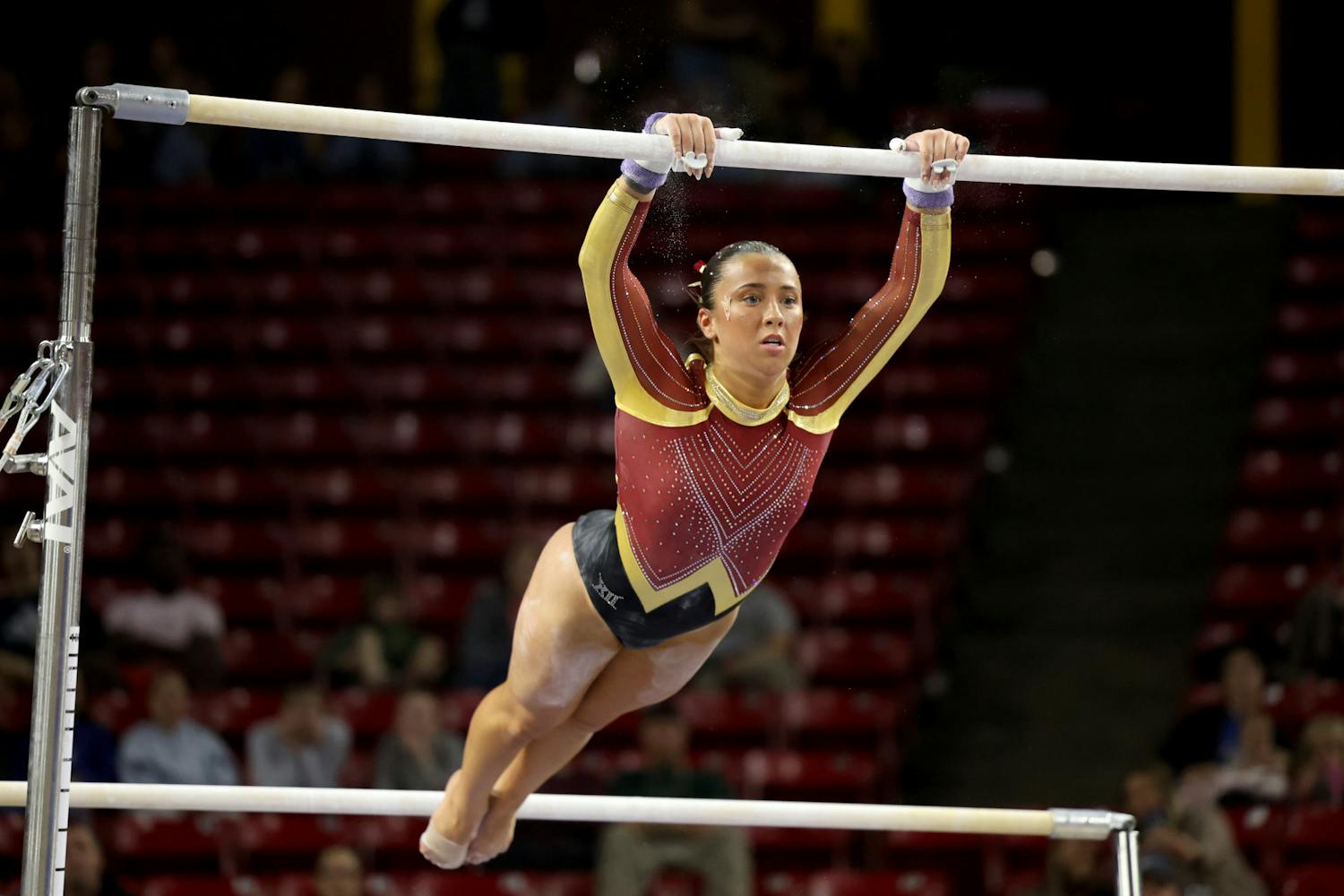Active COVID-19 cases are still declining within the ASU community, marking the eighth consecutive week of decline for the University.
An update from the University Thursday reported a total of 51 active cases – 46 of them students and five of them employees. Thursday's update has 19 fewer cases than Monday's when the University was reporting 70 active cases total.
According to the update, 40 of the 46 student cases are off campus in the metropolitan Phoenix area and the remaining six are in isolation on the Tempe campus.
The University has reported 7,195 cases and no deaths within the school community since the pandemic began.
A year ago today, Gov. Doug Ducey declared a state of emergency to combat the spread of the coronavirus. The number of COVID-19 cases is continuing to decline in the state as well.
Across the state, more than 830,000 Arizonans have contracted COVID-19 and more than 16,400 have died, according to data from the Arizona Department of Health Services.
Since Jan. 1, the University has collected test results from more than 66,590 students and employees. The ASU community's positivity rate is still hovering around 2.8%, using the cumulative number of positive results as the numerator and the total number of tests collected as the denominator, since Jan. 1.
Last month, the University announced it would welcome students back to campus in the fall for in-person instruction. It has yet to make a final decision on graduation delivery or announce specifics for summer instruction or what the fall semester is going to look like.
In a Wednesday briefing, Joshua LaBaer, executive director of ASU's Biodesign Institute, said while the decline in cases since the holiday months is a good thing, allowing hospital space to open up, the state's seven-day trailing average is still too high.
LaBaer said Biodesign, which partnered early in the pandemic with the state to help develop testing methods and keep track of data, is closely monitoring the increase in the number of cases that show the U.K. and California variants.
"In the last several weeks, an increased rise in the fraction of tests that are positive due to this U.K. variant," he said. "Which means that it's increasing in its prevalence among the other strains that are present in Arizona."
The Centers for Disease Control and Prevention is still trying to understand the variant but has already said it is associated with increased transmission.
At the Wednesday briefing, University spokesperson Jay Thorne said there are no changes to the school's operating protocols following Ducey's executive order that lifted occupancy limits.
READ MORE: University assessing executive order that lifts occupancy restrictions
Thorne said policies for face coverings, limited group gatherings and use of gyms only by appointment still remain.
LaBaer also said Wednesday that it's crucial to remember the curve of data is exponential and changes in spread won't immediately be noticed.
"There is certainly a risk right now" of spread, LaBaer said, due to the executive order. "Since 70% of our population is not resistant to the virus, the virus could spread."
David Thomas, CEO of ASU Research Enterprise, site manager and operational recruiter at public testing and vaccine sites on behalf of ASU, said Wednesday everything was still "running quite smooth" at the sites.
In Arizona, 20.5% of people have received at least one dose of the vaccine.
"Throughput continues to remain consistent," Thomas said. "In State Farm Stadium, we're running about 440 (COVID-19 vaccines administered) an hour. At Phoenix (Municipal Stadium) it's about 385 an hour. So that means there's a dose given about every 8.7 seconds at those two sites."
Thomas said outdoor vaccine and testing sites are "looking at considerable planning to accommodate the heat" in the coming summer months.
Reach the reporters at pjhanse1@asu.edu and follow @piperjhansen on Twitter.
Like The State Press on Facebook and follow @statepress on Twitter.
Continue supporting student journalism and donate to The State Press today.

Piper Hansen is the digital editor-in-chief at The State Press, overseeing all digital content. Joining SP in Spring 2020, she has covered student government, housing and COVID-19. She has previously written about state politics for The Arizona Republic and the Arizona Capitol Times and covers social justice for Cronkite News.




